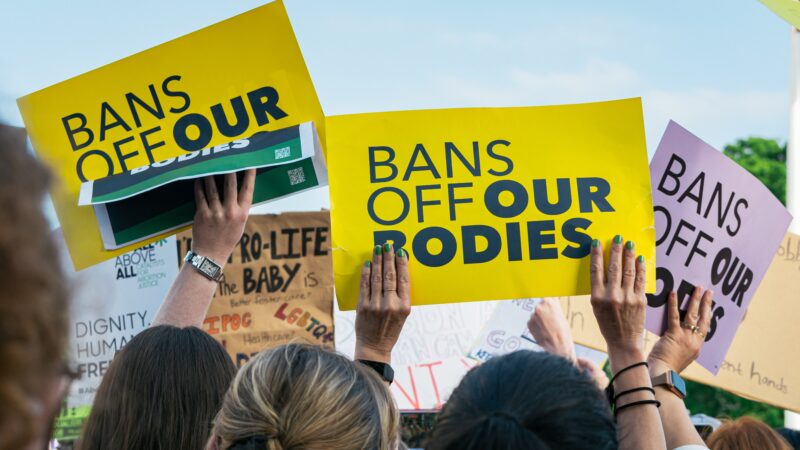Foreign aid is a somewhat controversial subject.Those in favour argue that as a developed nation, we are morally obligated to help those who need it. They argue that it will improve the lives of others and that it is a great use of soft power. Opponents argue that charity should begin at home, that we have our own problems to deal with and that it has done nothing.
Regardless of your view on the matter, you cannot deny one thing- that the foreign aid sector is in need of dire reform. It’s not the sector that its advocates promise us that it is. It’s a sector rife with sexual violence, corruption, the spreading of illness, mistreatment of children and misallocation of resources. A movement that should be helping others is doing the complete opposite.
Let’s Talk About Sex (Violence)
One problem with the aid sector is the sheer amount of sexual violence that occurs within it. A person only needs to browse articles about UNICEF and others to see the deluge of scandal.
Women are encouraged to sleep with aid workers in order to obtain jobs. Children and women are raped, used as prostitutes. There are illegitimate children and abortions. It is not just one or two workers or just a single organisation. Numerous men and organisations were named by a variety of women.
One Congolese women died after a botched, illegal abortion. The man who’d impregnated her ghosted her after she told him. Who’s going to tell her children?
Haiti was another victim of deviance.
It is a country that has suffered political instability, dictators, and natural disasters for years. Even before the tragic 2020 earthquake, aid rushed to Haiti, so did those who sought to violate the innocent. For years, peacekeepers raped and abused Haitian citizens. Children as young as seven were raped. One report found 265 children whose mothers were abandoned after falling pregnant. These women suffered as family and neighbors cast them out. Peacekeepers took advantage of the poverty by offering food and money to minors in exchange for sex.
Even if these things were done to a consenting adult, it is a gross abuse of power and sexual manipulation. Sri Lanka, the country where most of the offenders came from, eventually paid up. The UN also took its sweet time to apologise, eventually owning up in 2016.
Let us not forget the famous whistleblower Kathryn Bolkovac. The former American police officer discovered a huge sex trafficking ring in the war-torn Bosnia, with young children involved. Further digging from Bolkovac revealed that those involved were foreigners, with many aid workers included. These crimes were actively ignored or covered up by the powers that be. After attempting to blow the whistle, Bolkovac was demoted, then fired. She luckily eventually gained help and did reveal it to the world, but barely anything was done. Whilst Bolkovac would eventually win money for wrongful dismissal, the company would not do much else. Even years after Haiti, Congo and Bosnia, cases are frequently dug up today.
Money, Money, Money
In 1983, a devastating famine hit the African nation of Ethiopia. News cameras from around the world broadcast images of devastation and starvation to the homes of millions. Donations poured in from average citizens. ‘We Are the World’ and ‘Do They Know It’s Christmas?’ topped the charts. Live Aid gave us classic performances from the biggest acts of the age.
Most of it didn’t go to the starving Ethiopians. A large portion went to arming militants and the dictatorial government of the day.
We all hear jokes about how palaces are built with aid money and sadly, it’s not incorrect. Aid to Afghanistan went to the Dubai holiday homes of the elite. Rebels, politicians and tribal chiefs are stealing money destined for the starving population in Yemen. A sixth of foreign aid ends up in the bank accounts of the wealthy and the powerful.
Who can forget the Oil-for-Food scandal in Iraq?
Just look at how much the heads of charity organisations are on. Since taking on the role of CEO of the International Rescue Committee (IRC), David Miliband has seen his pay treble in eight years. A recent £20K pay rise has seen him with a new salary of £768K. That’s over $1M. This money, as one would expect, is helped by taxpayers’ money.
We can wax lyrical about the pay of CEOs in private charitable organisations, but it’s still pretty darn shady. When it’s coming from taxpayers, well, still not great. Over $1M could pay for malaria treatment or schooling for a child. Instead, it all goes to rich fat cats.
Ineffective Bureaucracy
Aid isn’t easy. You don’t just dole out cash to a hospital or a school. Aid creates bureaucracy. There are multiple layers, not least in the ground. You must pass through so many people- it may create jobs, but it also creates problems. Before it reaches those who need it, it’s gone.
In countries with mass amounts of corruption, money is siphoned off to numerous individuals. Politicians and those in charge often get kickbacks in order to get things moving. It changes hands far too often.
The world was horrified by Biafra in the 60s, Ethiopia in the 80s and Haiti in the 10s. Yet, years later, we still see adverts for starving children being forced to walk for miles for water. International aid has not found a way to break decades of issues. It is not necessarily their fault- wars and disasters are pretty hard to predict- but the point still stands.
Where are the schools? The water pumps? The hospitals?
Sometimes it’s not safe for aid workers. It just might not be feasible. They also need to pull their fingers out. How can they help when they’re based in cities? How can they help when the assistance of officials is based on bribery?
Take Indonesia for example. The country has attempted to put themselves in the forefront of the international aid community with a pledge for millions. That’s all well and good, but it’s a conversation that’s been going on for years. Bureaucracy has prevented management and funds being properly allocated.
As the government argues with itself on the merits, or lack thereof, of international aid, they need to look at reform first. We cannot support a sector that rapes children, can’t allocate resources and takes money from the mouths of the needy.



